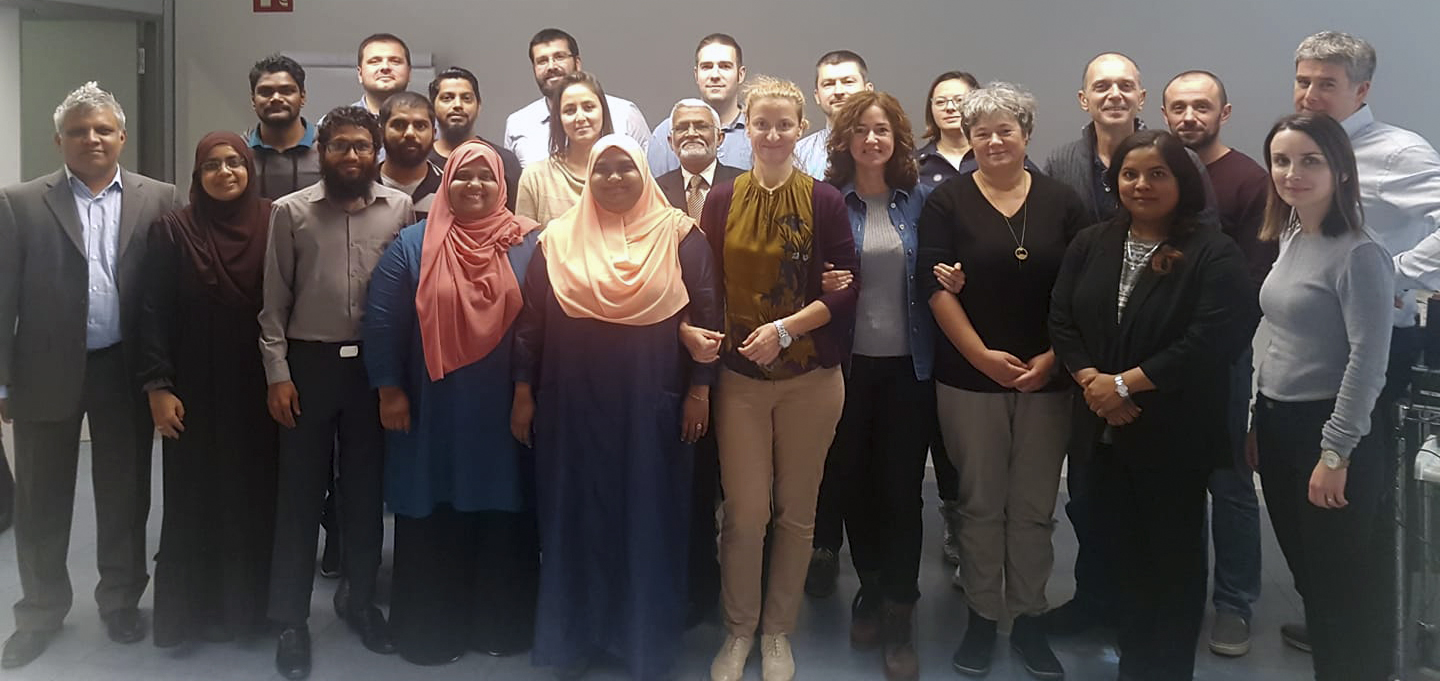Research group Edul@b is using the European project Erasmus+ as a springboard to introduce a new mixed model to the Maldives National University
The UOC recently held a meeting in conjunction with the "Advancing Higher Education in Maldives through E-learning Development" (AMED) project, which took place from 18 to 21 November and was set within the context of the Erasmus+ programme "Capacity Building in the Field of Higher Education". This current project is set to last 3 years, over which time the objective is to develop a mixed learning model that offers both classroom-based and online teaching from the Maldives National University (MNU). The project aims to increase access to higher education for the population, which is widely distributed over the nation's many islands. The Republic of Maldives, which comprises a chain of 26 atolls, is home to around 350,000 inhabitants who live on 203 different islands.
Knowledge transfer
Marcelo Maina, Nati Cabrera, Lourdes Guàrdia, Albert Sangrà and Sandrine Albert are the members of the research group Edul@b taking part in this project, alongside Maite Fernández from the Faculty of Psychology and Education Sciences. Together, they organized two-day sessions in which a committee of 17 representatives from the MNU met with key representatives from the UOC. Among the visitors was the MNU vice chancellor, Shareef Mohamed, other directors from strategic departments at the university and academic staff.
The group had the opportunity to share their ideas with Àngels Fitó, Vice President for Competitiveness and Employability at the UOC; Teresa Guasch, dean of the Faculty of Psychology and Education Sciences, and directors and staff from the academic and management teams.
Given the activity's orientation towards knowledge transfer, the meeting included working sessions where the UOC's eleven strategic functions, those that make quality online learning possible, were presented. Each session included a discussion focused on helping the MNU identify the key considerations to ensure a successful online transformation strategy at their institution.
On the third and final day, participants shared the outcomes of their discussions with the other partners involved in the project: the UOC, the MNU, the Faculty of Organization and Informatics at the University of Zagreb (FOI) and CARNET (Croatian Academic and Research Network).
Following this session, an action plan was outlined with an eye to transforming MNU's classroom university model into a dual modality model, which relies heavily upon the use of technology and digital methodology. The participants closed the session with a working document that develops a roadmap towards putting a mixed learning model into practice.
Co-creation workshops
Two workshops were also organized for the meeting. The first was centred around a short programme aimed at university directors to facilitate their decision-making, and the second was aimed MNU professors and looked at the process of designing learning and how to impart mixed modality courses. These activities were coordinated by the UOC and focused on the concept of co-design, in which, from day one, the end user takes part in outlining learning that is oriented towards practice. It is hoped that this will lead to the establishment of new policies and institutional strategies that make it easier to incorporate mixed modality learning, as well as the development of programmes and courses by MNU professors that implement this very model. The project also hopes to help build a new digital infrastructure, which includes providing hardware and software.
According to the calendar set out for the Erasmus programme, the project will be rolled out over the next year as part of a series of actions whose aim it is to progressively transition towards a mixed learning model at MNU.
You can find further information about the AMED project by visiting this page.


